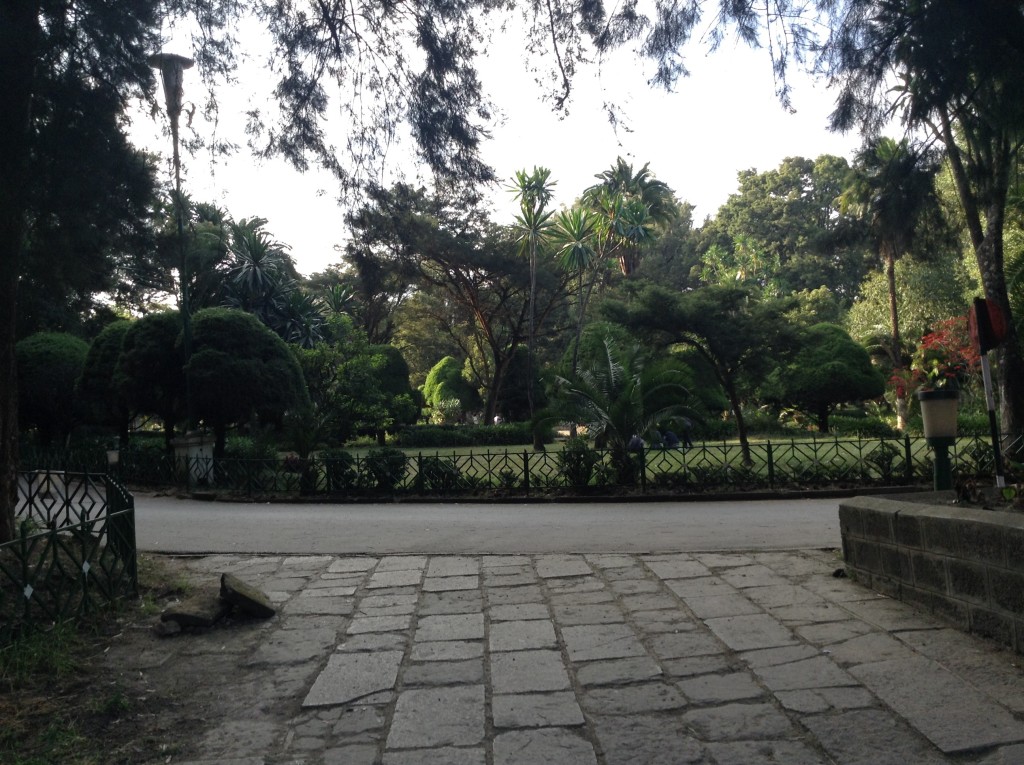You’re in Ethiopia? WTF? Why? What’s going on?
–pretty much everyone I know
***
Dear Everyone,
People, Ethiopia is Language Nerd Heaven. The real question is why I didn’t get over here sooner.
There are eighty-odd languages in Ethiopia. Some say 82, some say 85, some say more. Part of the reason it’s difficult to say is something I’ve talked about before – it can be difficult to decide what’s its own language and what’s a dialect of another language. If we try to count up every variety of every language, we’ll be well over 200 in no time.
Even better, there are languages that haven’t been added to any lists because no listmaker knew about them. Dr. Moges Yigezu told me that a former student of his recently happened across a group of about 500 people living in southwest Ethiopia, speaking a language no outsider had heard of — Ngaalam.* So whatever the number is, add one more.
But plenty of places have lots of languages, especially in Africa where every person you meet seems to speak about 16, not that I’m jealous.** What makes Ethiopia so special?
Two things. First, unique in African history, Ethiopia was never colonized. The Italians came in during WWII, but they got kicked right back out within five years. So one of the biggest dynamics of many other parts of the world, the language of the colonizer vs. that of the colonized, is just not a major player in the language ballgame around here.
That dynamic is important and complicated in its own right, and trust me, I plan to visit places where I can tell you a bit about it in the future, but not having it means Ethiopia is free to focus on the second thing: it’s got plenty of its own languages to sort out, and no language to clearly label the “main” one.
Amharic is the language that most outsiders associate with Ethiopia, because it’s the working language of the government and by far the biggest language in the capital, Addis Ababa.*** But Amharic is only spoken by about 30% of the population. Oromo actually has more speakers, about 35%. Somali has 6%, Tigrinya has 6%, and I could keep going (see above re: 85 languages).
Point is, no one language has a majority. And that’s also pretty unusual, even for places with many languages. Even more more unusual, the current Ethiopian government is trying, as best it can, to deal with all these languages in a healthy, happy, warm-n-fuzzy way.
“Current” is not a throwaway word here. Earlier governments have not always taken this approach, not by a long shot. The previous two governments, that of Emperor Haile Selassie (who overthrew the Italians) and of the communist Derg (who overthrew the Emperor) both had an Amharic-only policy.**** It wasn’t just about the language, natch – language is all politics, I keep trying to tell y’all. They both considered getting everyone to speak Amharic a way to unite the nation.

Addis Ababa University is on the grounds of the old Emperor’s palace, by the way. Hot damn is it fancy.
But the current guys have taken up the whole “tossed-salad-over-melting-pot” concept, and they are taking it seriously. Every group has the right to speak and promote its own language, every language is recognized officially, and 22 of them are being used for primary education, with more on the way. “Diversity as resource, instead of diversity as threat,” as Dr. Moges puts it, and notes that the nation has hardly disintegrated under the new policies.
This is one of the main topics I’ll be looking into in the next few posts: finding the balance between supporting eighty-some languages and running an effective national government. I’ll throw a few other odds and ends in too, don’t worry.
Hope you’re excited, because I sure as hell am.
Yours,
The Language Nerd
*Now Dr. Moges is involved in trying to document Ngaalam before it vanishes completely, as seems likely. More on this topic when we talk about endangered languages.
**I’m jealous.
***I mentioned Amharic’s Ge’ez script before in my post on writing systems, here. Abuguidas FTW.
****The Derg actually had a pretty slick country-wide program for basic literacy in a solid 15 languages. But for any education beyond that, or anything related to the government, it was Amharic all the way.
Got a language question? Ask the Language Nerd! asktheleagueofnerds@gmail.com
Twitter @AskTheLeague / facebook.com/asktheleagueofnerds
I know, I know, short post. I just got into town, y’all. Gimme a minute to put the pieces together.
Basic data from Wiks, but the main source today is Dr. Moges Yigesu’s Language Ideologies and Challenges of Multilingual Education, which I hope you are ready to see more of. The info for this post came from the historical overview, before you even get to the juicy bits.
Updated 29 Oct after getting the opportunity to speak with Dr. Moges in person, because I am mad lucky.